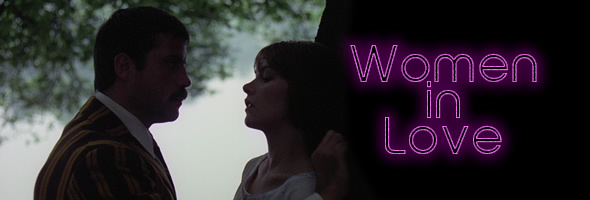
Color, 1969, 131m.
Directed by Ken Russell
Starring Glenda Jackson, Oliver Reed, Alan Bates, Jennie Linden, Eleanor Bron, Alan Webb, Vladek Sheybal, Phoebe Nicholls, Christopher Gable, Michael Gough
BFI (Blu-ray & DVD) (UK RB/R2 HD/PAL), Criterion (Blu-ray) (US RA HD) / WS (1.66:1) (16:9), MGM (DVD) (US R1 NTSC, UK R2 PAL) / WS (1.66:1)
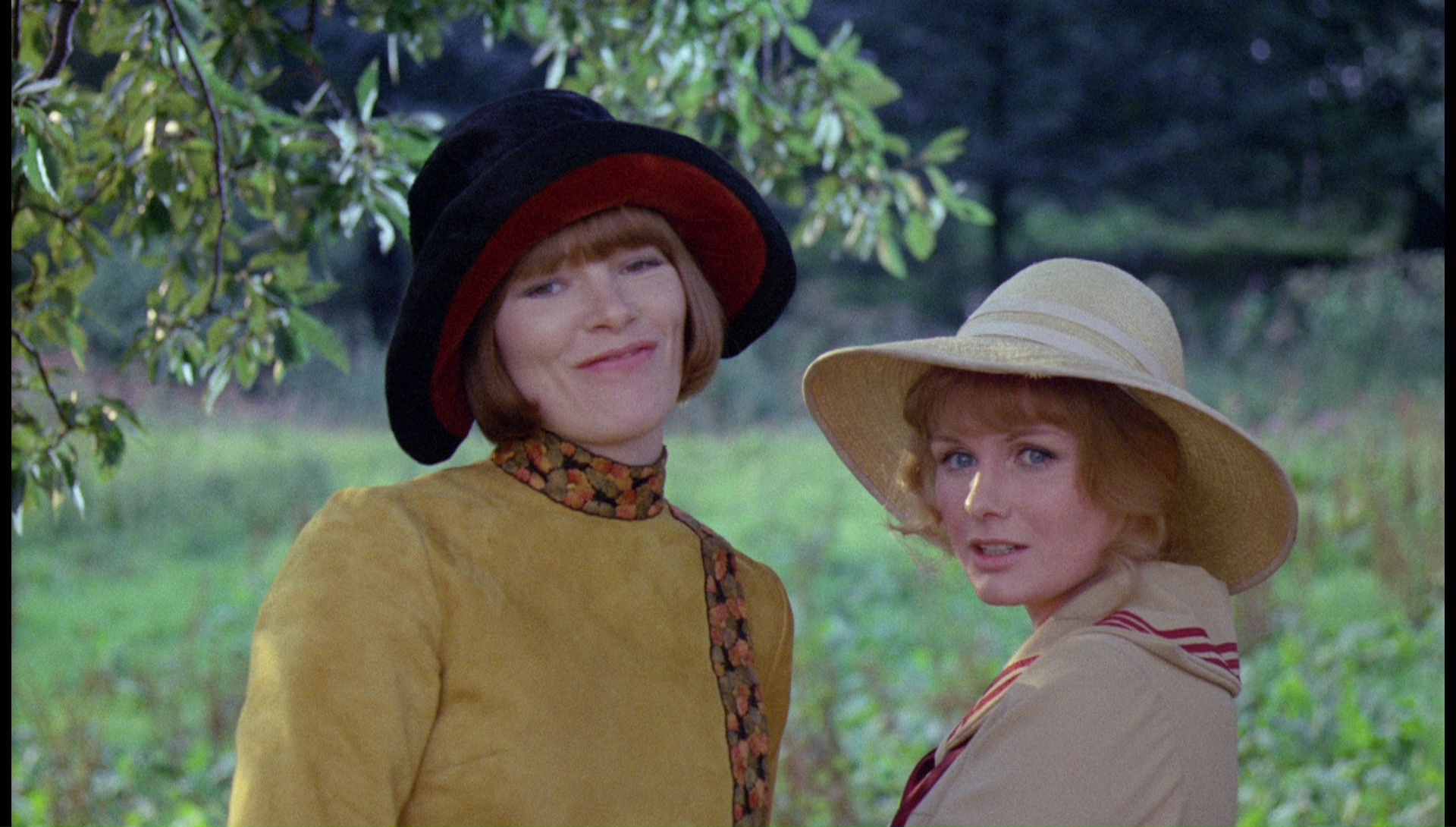
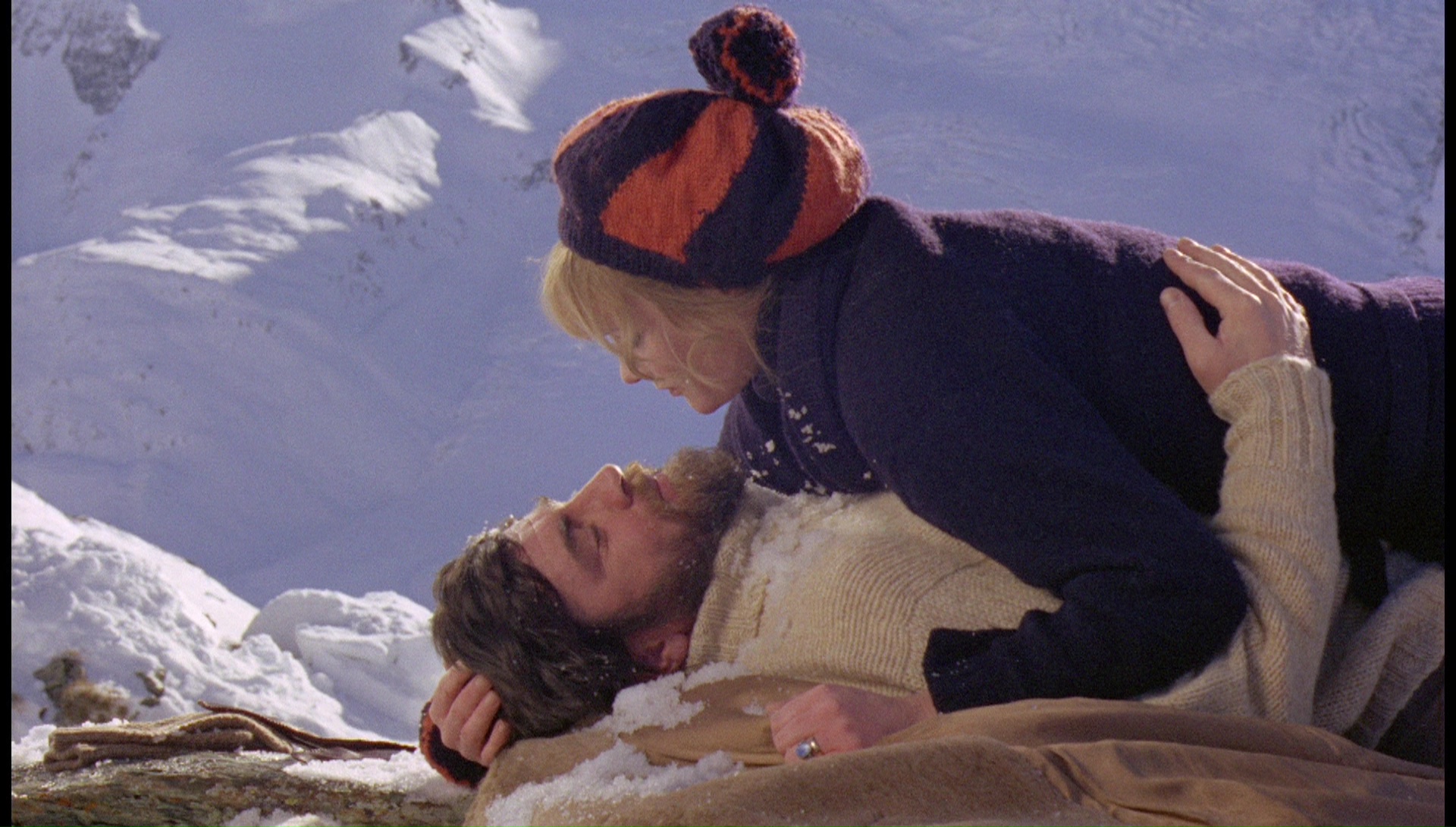 Usually regarded as the first "real" Ken Russell movie (and cited as his best for decades, though that's finally changed in recent years), this audacious adaptation of D.H. Lawrence's classic novel pushed the boundaries of both the limits of screen acting and the permissiveness of the censors. Four committed performances keep the film secure as perhaps the best Lawrence adaptation to date, but it's really Russell's show all the way as he introduces many of the visual ideas and cultural references that would come to define his style for the rest of the decade. Not surprisingly, Russell would later return to Lawrence again for The Rainbow (1989) and a TV miniseries of Lady Chatterley (1993), both of which are perfectly respectable but didn't come close to this film in impact.
Usually regarded as the first "real" Ken Russell movie (and cited as his best for decades, though that's finally changed in recent years), this audacious adaptation of D.H. Lawrence's classic novel pushed the boundaries of both the limits of screen acting and the permissiveness of the censors. Four committed performances keep the film secure as perhaps the best Lawrence adaptation to date, but it's really Russell's show all the way as he introduces many of the visual ideas and cultural references that would come to define his style for the rest of the decade. Not surprisingly, Russell would later return to Lawrence again for The Rainbow (1989) and a TV miniseries of Lady Chatterley (1993), both of which are perfectly respectable but didn't come close to this film in impact.
Soon after the end of World War I, two sisters are caught up in the free-spirited changes sweeping Great Britain. Gudrun Brangwen (Jackson), a sculptress with a strong affinity for the arts (including interpretive dance), and Ursula (Nightmare's Linden), a more traditional schoolteacher, find themselves in very different romantic relationships. Gudrun begins a turbulent affair with the brooding Gerald (Reed), heir to the town's local mine industry, while Ursula becomes attached to Gerald's more sensitive best friend, school inspector Rupert (Bates). Their movements through different social 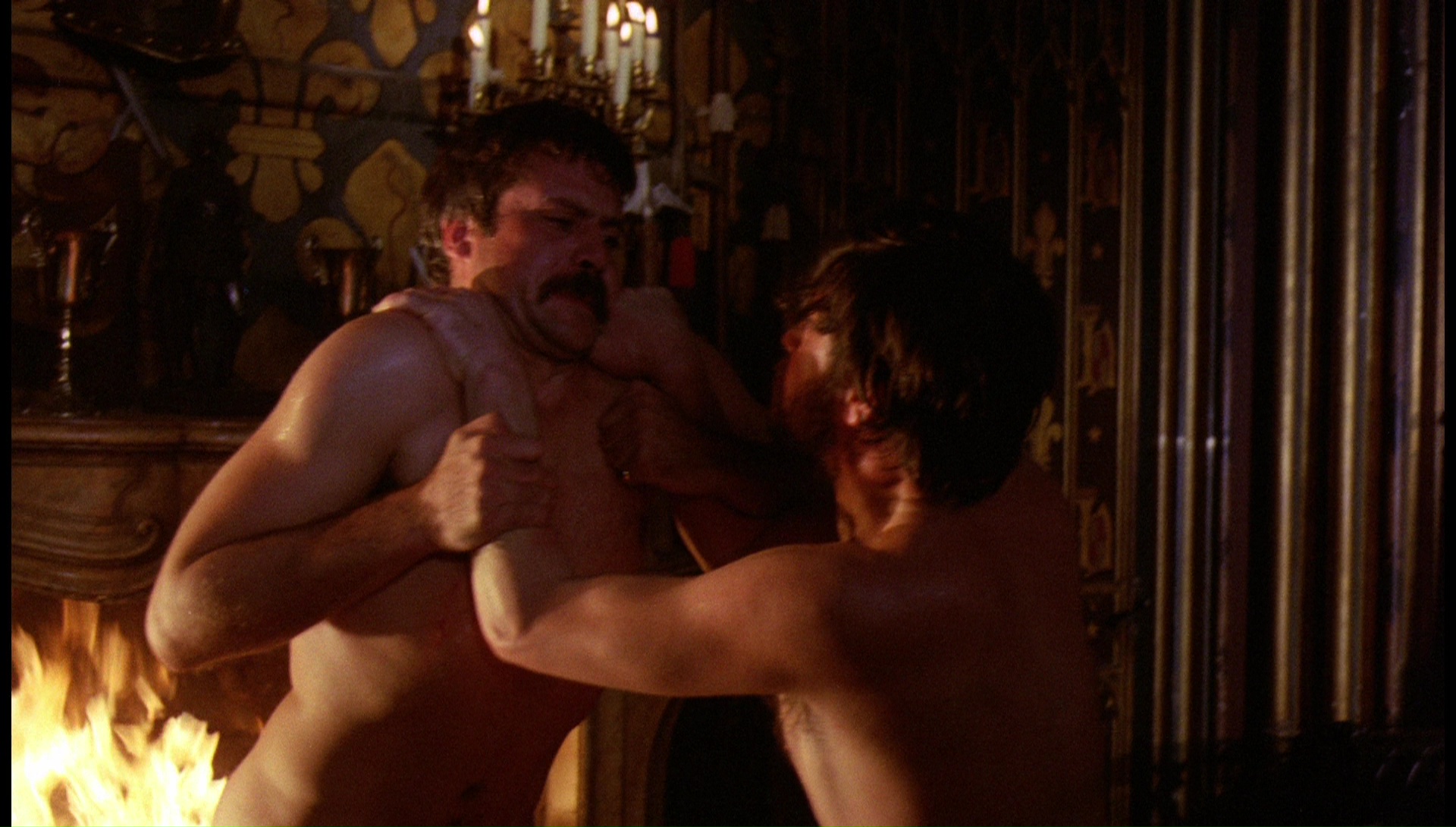 circles brush with both happiness and extreme tragedy, while other colorful characters highlight the ongoing struggle to
circles brush with both happiness and extreme tragedy, while other colorful characters highlight the ongoing struggle to 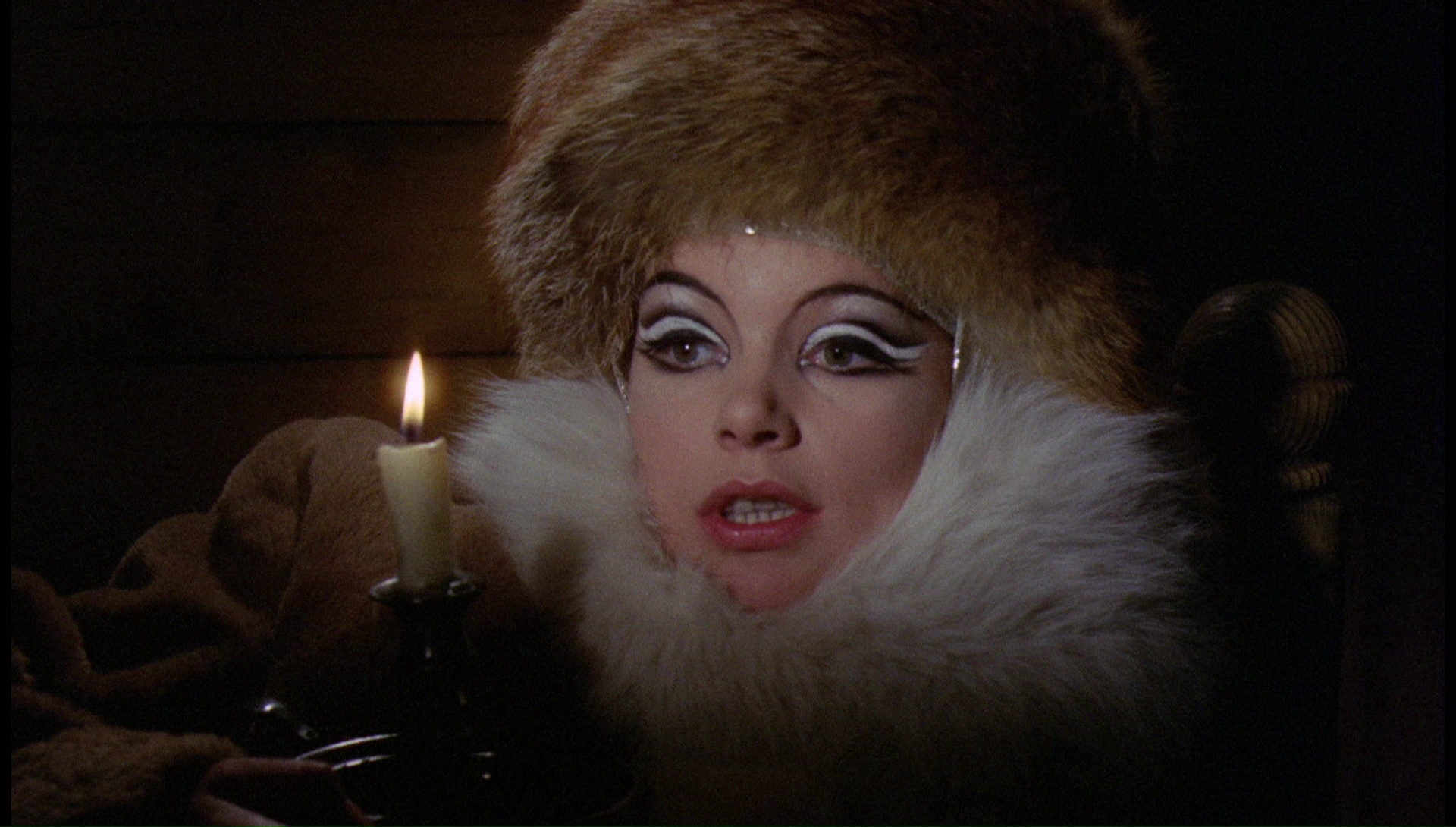 determine whether romantic love can fulfill one's life alone or whether something else is needed to live a satisfying life -- not to mention whether the opposite sexes are always fated to inflict emotional violence on each other.
determine whether romantic love can fulfill one's life alone or whether something else is needed to live a satisfying life -- not to mention whether the opposite sexes are always fated to inflict emotional violence on each other.
The perception that the outrageous Ken Russell moviegoers can to either love or hate sprang fully-formed from this film is now easily disproved thanks to the wide availability of his excellent earlier BBC films, not to mention his two earlier features, French Dressing and Billion Dollar Brain, which are far less personal but not without interest. Obviously Jackson and Reed get the juiciest material here as the more combative couple, culminating in a late confrontation that lets them both rip at the screen with all they've got. However, most audiences were far more startled an hour in with the now infamous nude wrestling scene between Reed and Bates, still one of the most famous moments in Russell's filmography (and one he wrote about with great humor in his autobiography). So powerfully executed that few censors could justify taking any action, it's still a jolting and primal sequence not easily forgotten. The film is also significant for featuring numerous actors who would appear in later Russell films; for example, several cast members (including Jackson, Christopher Gable, and the always colorful Vladek Sheybal) would reunite for The Boy Friend in 1971, and Jackson has a funny bit about 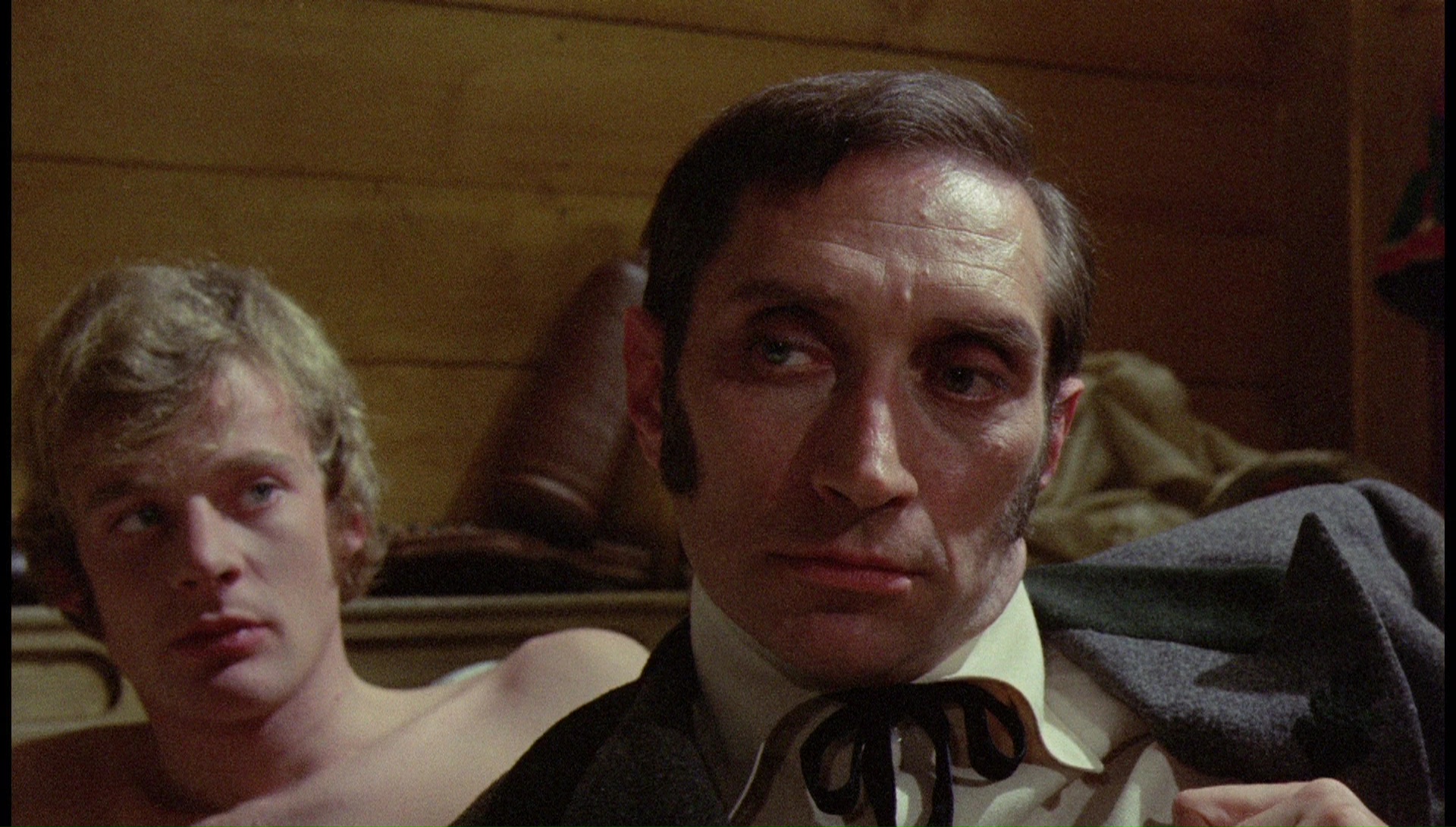 Tchaikovsky that foreshadows her role in Russell's next film, the astonishing and still underrated The Music Lovers. Just for fun, Russell makes a few callbacks to his previous film about Isadora Duncan, too.
Tchaikovsky that foreshadows her role in Russell's next film, the astonishing and still underrated The Music Lovers. Just for fun, Russell makes a few callbacks to his previous film about Isadora Duncan, too.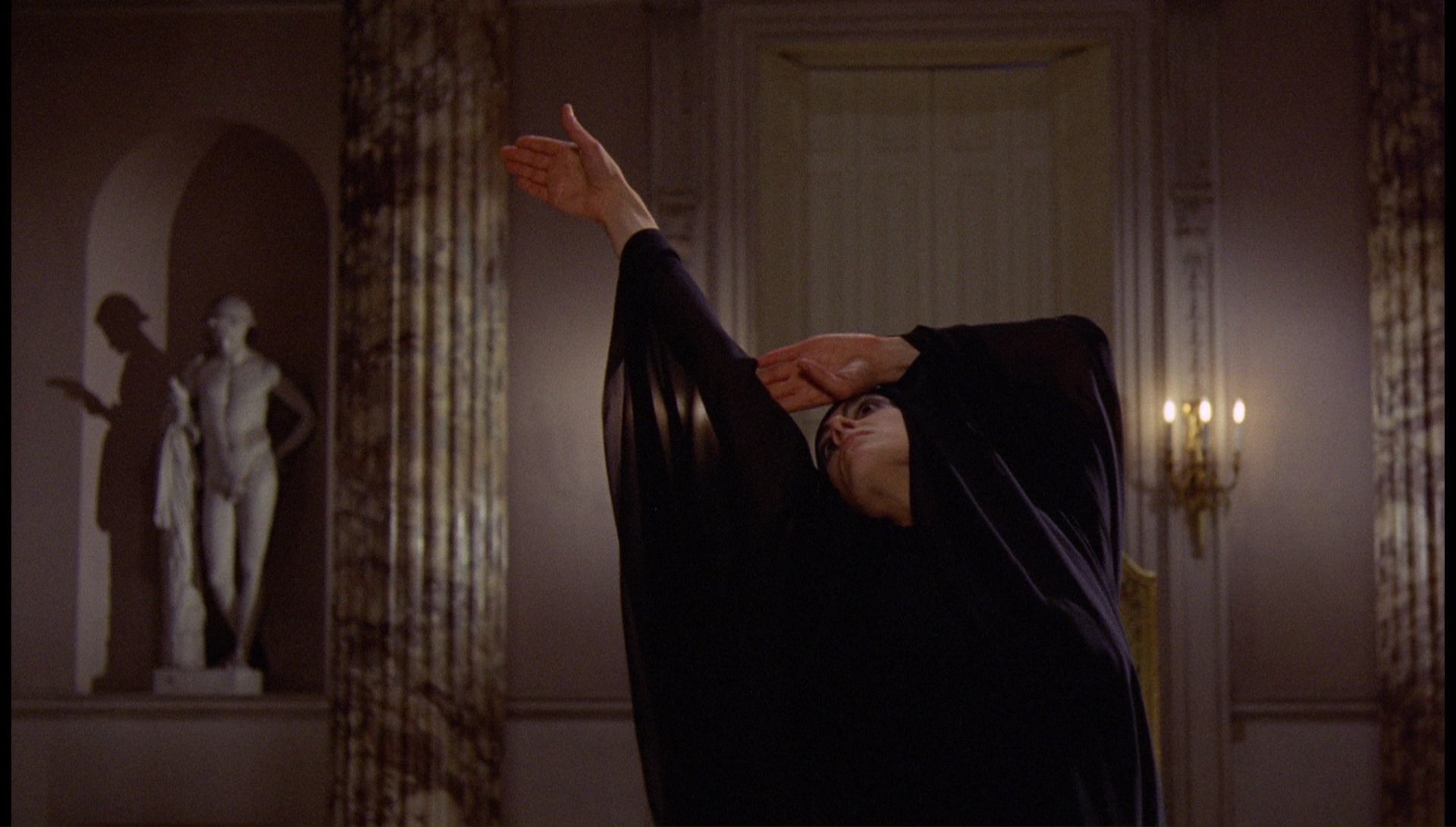
United Artists' successful theatrical release of this film ensured it would stay in circulation in repertory theaters and on home video almost without fail for the following decades, and rights holder MGM has managed to keep in out there from VHS to DVD with its 1.66:1 compositions rarely harmed much at all. Unfortunately their DVD wasn't anamorphic (a ridiculous standard practice for 1.66:1 films there at the time), so a 16x9 version wasn't available until 2016 with the UK Blu-ray release from the BFI. Sporting a new 4K digital restoration undertaken in collaboration with MGM and Park Circus, it's a massive leap up from the old SD versions in every possible way. Blacks are deeper and stronger, detail pops out far more clearly, and flesh tones are more consistent and natural; there's really no comparison at all. The LPCM English mono audio sounds pristine, as does an isolated music track highlighting Georges Delerue's score, and optional English subtitles are also included. Bonus points for restoring the original United Artists Transamerica logo, 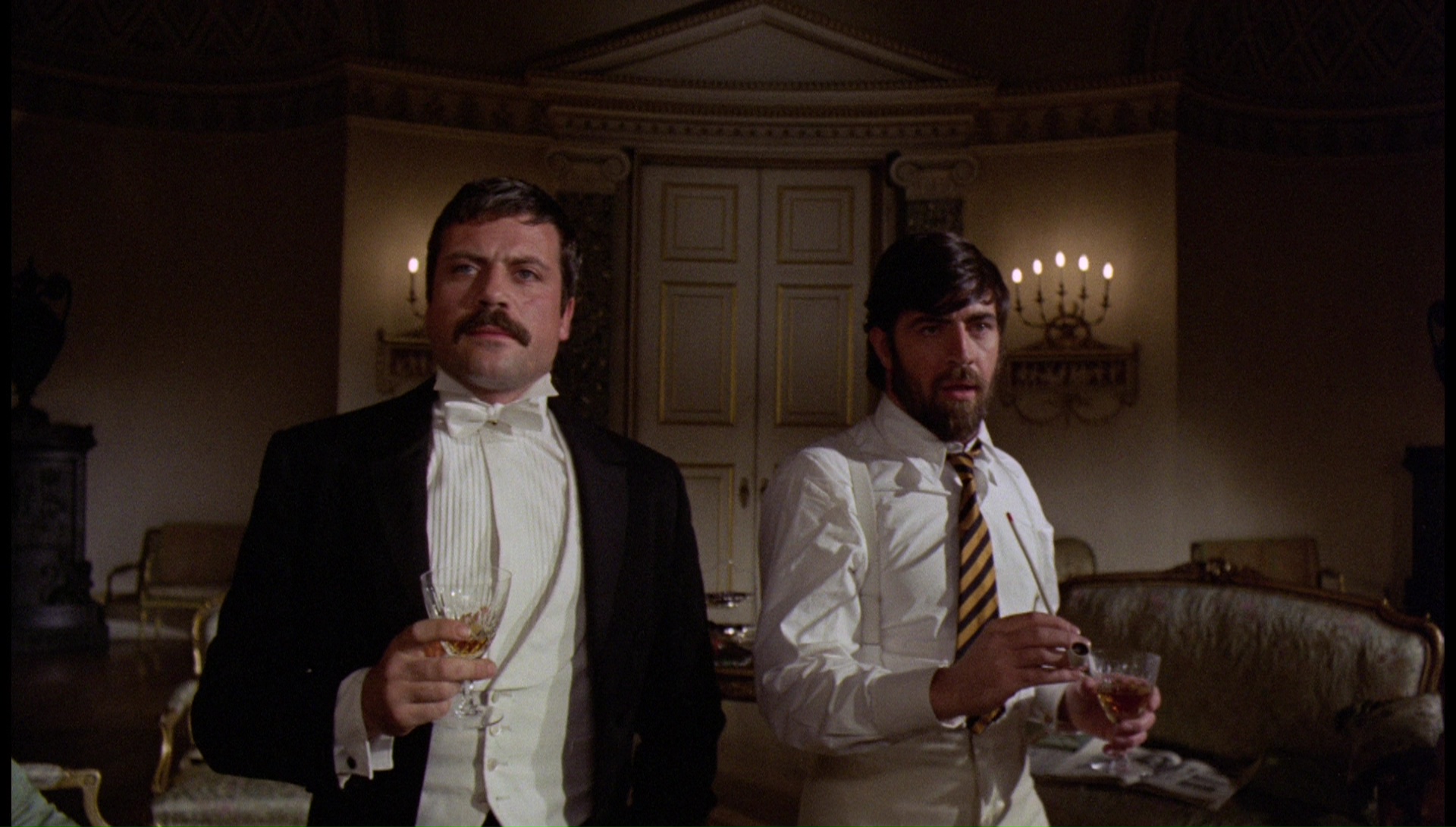 which has been missing for decades. Ported over from the DVD are the theatrical trailer and a pair of audio commentaries, a very colorful one with the late Russell (who's full of Lawrentian observations about the real-life figures who influenced the novel and anecdotes about his cast) and a more straightforward one with producer-writer Larry Kramer, who of course went on to write the groundbreaking play The Normal Heart (and wrote the less groundbreaking 1973 musical version of Lost Horizon). Both are well worth hearing as they take different angles on a film rich with allusions and themes you can sift through for countless viewings.
which has been missing for decades. Ported over from the DVD are the theatrical trailer and a pair of audio commentaries, a very colorful one with the late Russell (who's full of Lawrentian observations about the real-life figures who influenced the novel and anecdotes about his cast) and a more straightforward one with producer-writer Larry Kramer, who of course went on to write the groundbreaking play The Normal Heart (and wrote the less groundbreaking 1973 musical version of Lost Horizon). Both are well worth hearing as they take different angles on a film rich with allusions and themes you can sift through for countless viewings.
There's also a wealth of new material here, starting off with a 2015 piece with the film's cinematographer, "Billy Williams OBE BSC in Conversation with Phil Meheux BSC" (49 mins.), conducted at a screening of this film. The two friends touch on some of his other work (including Billion Dollar Brain and his Oscar-winning Gandhi), but the Russell film takes center stage as they cover some of the innovations of this "gift" he received of being able to explore the color of light at so many times of day in such a variety of settings. 1982's "The Guardian Lecture: Glenda Jackson 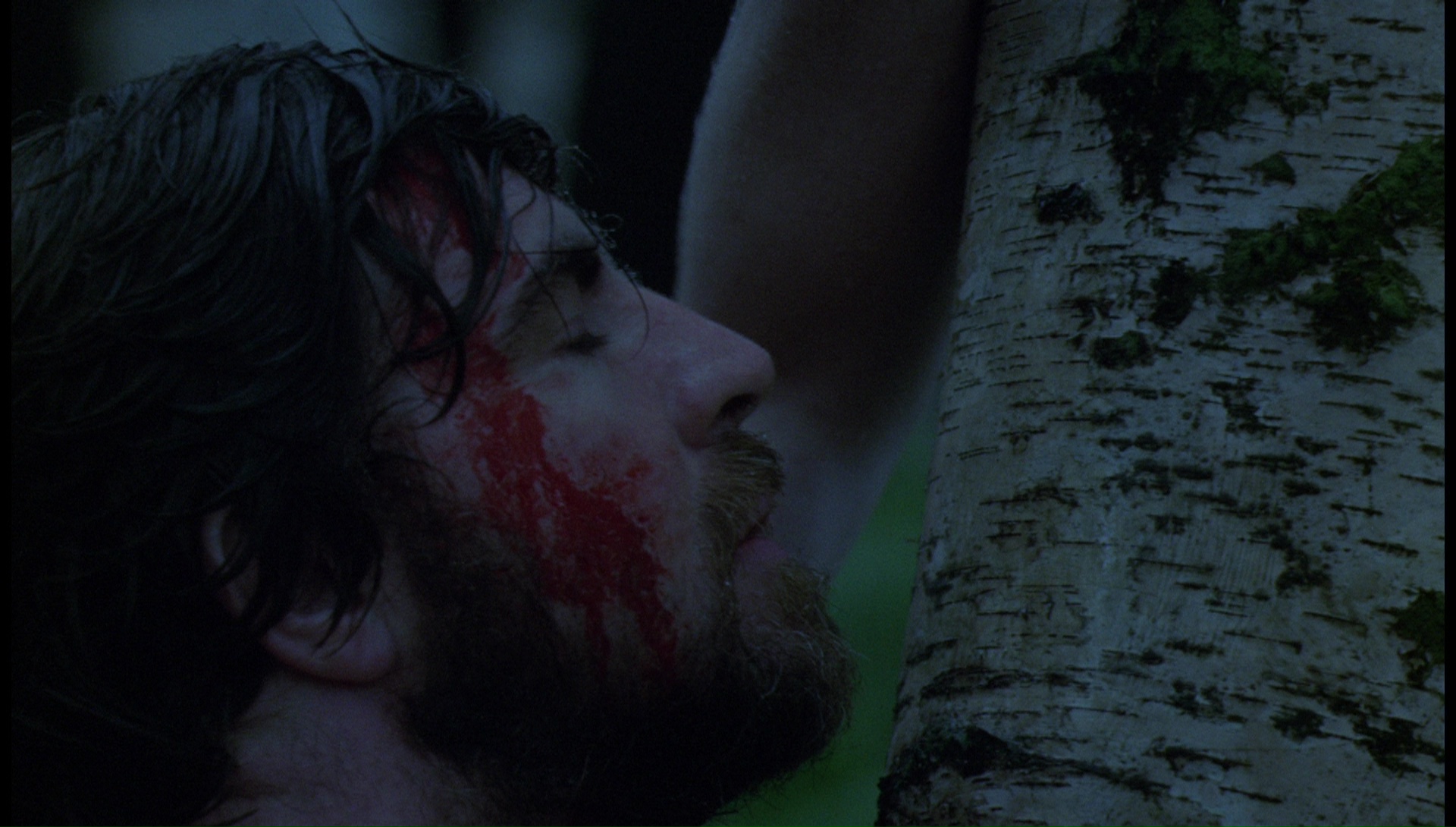 Interviewed at the National Film Theatre" (77 mins.) is an in-depth audio Q&A (played behind the film for that abbreviated running time) in which the stage and screen actress (and future politician) explores the demands and rewards of her career, which requires some challenging emotional modulation
Interviewed at the National Film Theatre" (77 mins.) is an in-depth audio Q&A (played behind the film for that abbreviated running time) in which the stage and screen actress (and future politician) explores the demands and rewards of her career, which requires some challenging emotional modulation 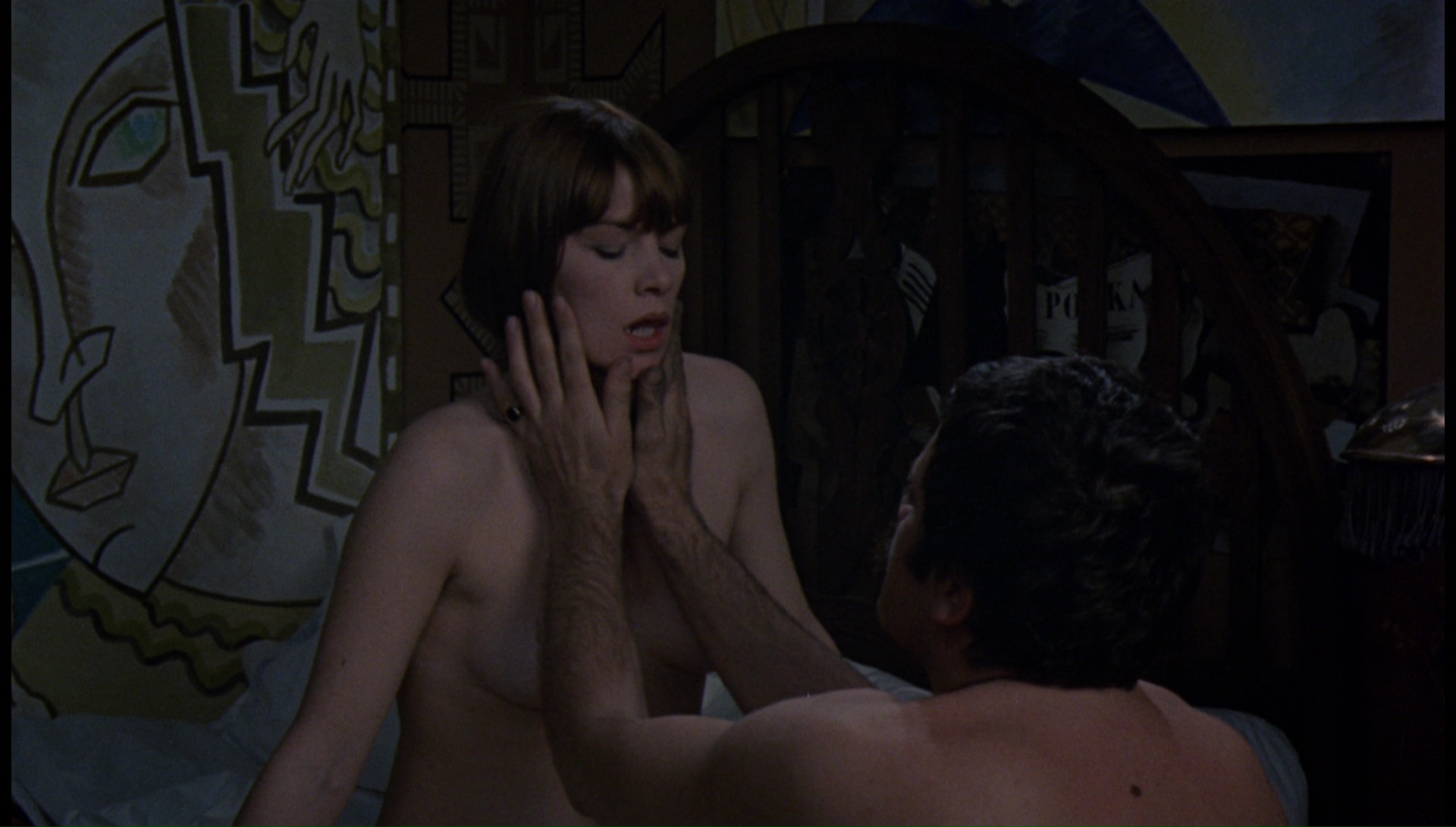 at all times. From Peter Brook's Theater of Cruelty through her Oscar-winning movie roles, it's all touched on here in very witty and articulate fashion, including an interesting bit about her general dislike of television (apart from her famous role as Queen Elizabeth I). Jackson turns up as a host of sorts for 1974's "The Pacemakers," a 14-minute arts magazine program in which she appears on the set of Sunday Bloody Sunday and looks back at how her stage work prepared her for film (with a substantial look at her big scene with Reed in this film). Also included are a stills and collections gallery and, perhaps most intriguingly, a 1972 short film, "Second Best" (22 mins.), with Bates and his wife, Victoria Ward, starring in another D.H. Lawrence adaptation about a spurned woman who returns to the countryside and courts a man through mole hunting (yes, as in the subterranean animal). Very rarely seen and never available in any video format before, it's quite a little discovery and a rare Lawrence adaptation to move its setting to the present day. The excellent liner notes booklet boasts a lengthy essay about the main feature by Michael Brooke, a look at the film's memorable Shirley Russell costumes written by Claire Smith, a Russell bio by Paul Sutton, and a very useful overview of "Second Best" by the BFI's Vic Pratt. Anyone who's been waiting for a respectable edition of one of the most vital films of the late '60s should be ecstatic with this release from start to finish.
at all times. From Peter Brook's Theater of Cruelty through her Oscar-winning movie roles, it's all touched on here in very witty and articulate fashion, including an interesting bit about her general dislike of television (apart from her famous role as Queen Elizabeth I). Jackson turns up as a host of sorts for 1974's "The Pacemakers," a 14-minute arts magazine program in which she appears on the set of Sunday Bloody Sunday and looks back at how her stage work prepared her for film (with a substantial look at her big scene with Reed in this film). Also included are a stills and collections gallery and, perhaps most intriguingly, a 1972 short film, "Second Best" (22 mins.), with Bates and his wife, Victoria Ward, starring in another D.H. Lawrence adaptation about a spurned woman who returns to the countryside and courts a man through mole hunting (yes, as in the subterranean animal). Very rarely seen and never available in any video format before, it's quite a little discovery and a rare Lawrence adaptation to move its setting to the present day. The excellent liner notes booklet boasts a lengthy essay about the main feature by Michael Brooke, a look at the film's memorable Shirley Russell costumes written by Claire Smith, a Russell bio by Paul Sutton, and a very useful overview of "Second Best" by the BFI's Vic Pratt. Anyone who's been waiting for a respectable edition of one of the most vital films of the late '60s should be ecstatic with this release from start to finish.
In 2017, Criterion brought the film back into circulation in the U.S. with its own Blu-ray from the same source, porting over both commentaries and "Second Best" as well. Other extras include segments from a 2007 interview with Russell for the BAFTA Los Angeles Heritage Archive, the 1989 TV special A British Picture: Portrait of an Enfant Terrible based on Russell's identically title autobiography, a 1976 interview with Jackson, interviews from the set (with Kramer, Bates and Linden), new interviews with Williams and editor Michael Bradsell, the trailer, and a liner notes essay by Linda Ruth Williams.
Reviewed on April 3, 2018.



 Usually regarded as the first "real" Ken Russell movie (and cited as his best for decades, though that's finally changed in recent years), this audacious adaptation of D.H. Lawrence's classic novel pushed the boundaries of both the limits of screen acting and the permissiveness of the censors. Four committed performances keep the film secure as perhaps the best Lawrence adaptation to date, but it's really Russell's show all the way as he introduces many of the visual ideas and cultural references that would come to define his style for the rest of the decade. Not surprisingly, Russell would later return to Lawrence again for The Rainbow (1989) and a TV miniseries of Lady Chatterley (1993), both of which are perfectly respectable but didn't come close to this film in impact.
Usually regarded as the first "real" Ken Russell movie (and cited as his best for decades, though that's finally changed in recent years), this audacious adaptation of D.H. Lawrence's classic novel pushed the boundaries of both the limits of screen acting and the permissiveness of the censors. Four committed performances keep the film secure as perhaps the best Lawrence adaptation to date, but it's really Russell's show all the way as he introduces many of the visual ideas and cultural references that would come to define his style for the rest of the decade. Not surprisingly, Russell would later return to Lawrence again for The Rainbow (1989) and a TV miniseries of Lady Chatterley (1993), both of which are perfectly respectable but didn't come close to this film in impact.  circles brush with both happiness and extreme tragedy, while other colorful characters highlight the ongoing struggle to
circles brush with both happiness and extreme tragedy, while other colorful characters highlight the ongoing struggle to  determine whether romantic love can fulfill one's life alone or whether something else is needed to live a satisfying life -- not to mention whether the opposite sexes are always fated to inflict emotional violence on each other.
determine whether romantic love can fulfill one's life alone or whether something else is needed to live a satisfying life -- not to mention whether the opposite sexes are always fated to inflict emotional violence on each other.  Tchaikovsky that foreshadows her role in Russell's next film, the astonishing and still underrated The Music Lovers. Just for fun, Russell makes a few callbacks to his previous film about Isadora Duncan, too.
Tchaikovsky that foreshadows her role in Russell's next film, the astonishing and still underrated The Music Lovers. Just for fun, Russell makes a few callbacks to his previous film about Isadora Duncan, too.
 which has been missing for decades. Ported over from the DVD are the theatrical trailer and a pair of audio commentaries, a very colorful one with the late Russell (who's full of Lawrentian observations about the real-life figures who influenced the novel and anecdotes about his cast) and a more straightforward one with producer-writer Larry Kramer, who of course went on to write the groundbreaking play The Normal Heart (and wrote the less groundbreaking 1973 musical version of Lost Horizon). Both are well worth hearing as they take different angles on a film rich with allusions and themes you can sift through for countless viewings.
which has been missing for decades. Ported over from the DVD are the theatrical trailer and a pair of audio commentaries, a very colorful one with the late Russell (who's full of Lawrentian observations about the real-life figures who influenced the novel and anecdotes about his cast) and a more straightforward one with producer-writer Larry Kramer, who of course went on to write the groundbreaking play The Normal Heart (and wrote the less groundbreaking 1973 musical version of Lost Horizon). Both are well worth hearing as they take different angles on a film rich with allusions and themes you can sift through for countless viewings.  Interviewed at the National Film Theatre" (77 mins.) is an in-depth audio Q&A (played behind the film for that abbreviated running time) in which the stage and screen actress (and future politician) explores the demands and rewards of her career, which requires some challenging emotional modulation
Interviewed at the National Film Theatre" (77 mins.) is an in-depth audio Q&A (played behind the film for that abbreviated running time) in which the stage and screen actress (and future politician) explores the demands and rewards of her career, which requires some challenging emotional modulation  at all times. From Peter Brook's Theater of Cruelty through her Oscar-winning movie roles, it's all touched on here in very witty and articulate fashion, including an interesting bit about her general dislike of television (apart from her famous role as Queen Elizabeth I). Jackson turns up as a host of sorts for 1974's "The Pacemakers," a 14-minute arts magazine program in which she appears on the set of Sunday Bloody Sunday and looks back at how her stage work prepared her for film (with a substantial look at her big scene with Reed in this film). Also included are a stills and collections gallery and, perhaps most intriguingly, a 1972 short film, "Second Best" (22 mins.), with Bates and his wife, Victoria Ward, starring in another D.H. Lawrence adaptation about a spurned woman who returns to the countryside and courts a man through mole hunting (yes, as in the subterranean animal). Very rarely seen and never available in any video format before, it's quite a little discovery and a rare Lawrence adaptation to move its setting to the present day. The excellent liner notes booklet boasts a lengthy essay about the main feature by Michael Brooke, a look at the film's memorable Shirley Russell costumes written by Claire Smith, a Russell bio by Paul Sutton, and a very useful overview of "Second Best" by the BFI's Vic Pratt. Anyone who's been waiting for a respectable edition of one of the most vital films of the late '60s should be ecstatic with this release from start to finish.
at all times. From Peter Brook's Theater of Cruelty through her Oscar-winning movie roles, it's all touched on here in very witty and articulate fashion, including an interesting bit about her general dislike of television (apart from her famous role as Queen Elizabeth I). Jackson turns up as a host of sorts for 1974's "The Pacemakers," a 14-minute arts magazine program in which she appears on the set of Sunday Bloody Sunday and looks back at how her stage work prepared her for film (with a substantial look at her big scene with Reed in this film). Also included are a stills and collections gallery and, perhaps most intriguingly, a 1972 short film, "Second Best" (22 mins.), with Bates and his wife, Victoria Ward, starring in another D.H. Lawrence adaptation about a spurned woman who returns to the countryside and courts a man through mole hunting (yes, as in the subterranean animal). Very rarely seen and never available in any video format before, it's quite a little discovery and a rare Lawrence adaptation to move its setting to the present day. The excellent liner notes booklet boasts a lengthy essay about the main feature by Michael Brooke, a look at the film's memorable Shirley Russell costumes written by Claire Smith, a Russell bio by Paul Sutton, and a very useful overview of "Second Best" by the BFI's Vic Pratt. Anyone who's been waiting for a respectable edition of one of the most vital films of the late '60s should be ecstatic with this release from start to finish.